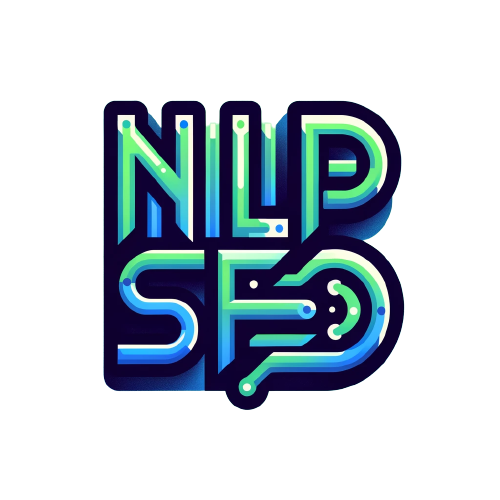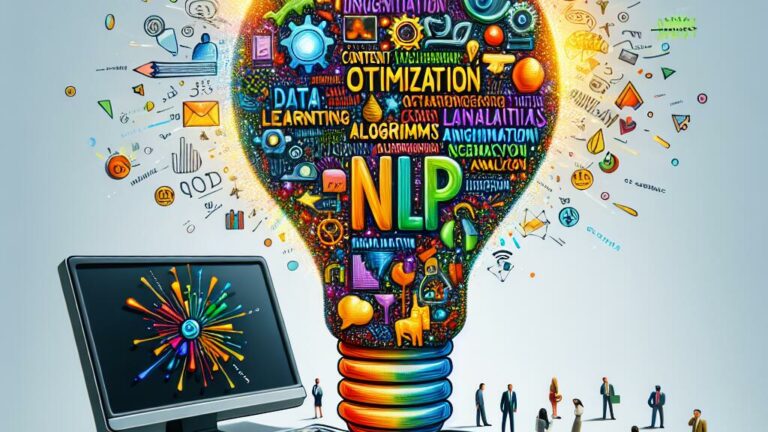The Future of SEO: Integrating AI and NLP for Better Rankings
Grasping the nuances of user behavior and search intent is absolutely vital for turbocharging SEO performance. By diving into data analytics, marketers can unearth patterns and preferences lurking within their target audiences. Tapping into tools that monitor engagement metrics, bounce rates, and conversion funnels unveils a treasure trove of actionable insights. These revelations are not just numbers—they’re the keys to refining content strategies and elevating user experiences across a website.
In this era dominated by big data, SEO professionals wield predictive analytics like a crystal ball—foreseeing shifts in search algorithms and evolving user tastes. This forward-thinking method paves the way for crafting bespoke content that resonates deeply with specific user needs. And let’s not overlook the power of data visualization tools; they transform convoluted datasets into digestible visuals, enabling teams to navigate complex information with clarity, making informed decisions feel almost intuitive. By zeroing in on these data-driven tactics, businesses can sharpen their edge in an increasingly cutthroat digital arena where effective SEO isn’t just beneficial—it’s essential!
Leveraging AI Analytics for Competitive Advantage
Integrating AI analytics into SEO strategies catapults businesses into a realm of profound insights, illuminating the intricate dance of user behavior and preferences. Imagine sifting through mountains of data—analyzing it not just for patterns but for hidden stories that shape marketing tactics. This isn’t merely a data-driven approach; it’s a thrilling expedition into personalized content delivery that amplifies user engagement and satisfaction like never before.
But wait, there’s more! Enter predictive analytics—a crystal ball forecasting future trends with uncanny precision. Companies can ride the waves of shifting consumer demands and evolving search engine algorithms, staying one step ahead in this frenetic digital landscape.
Embracing these sophisticated analytics tools doesn’t just sharpen customer targeting; it carves out competitive edges as well. Picture this: organizations keeping tabs on competitors’ online maneuvers, unraveling their strengths and weaknesses through comparative analysis like master strategists in a chess match. By fine-tuning content based on AI-generated insights, businesses are poised to refine their marketing approaches, snatching up larger slices of the market pie.
And let’s not forget the urgency—timely adjustments driven by actionable intelligence empower companies to remain nimble and relevant amidst an ever-changing digital whirlwind. It’s not just survival; it’s thriving in an exhilarating age where adaptability reigns supreme!
| AI Analytics Tool | Key Features | Benefits |
|---|---|---|
| Google Analytics | User behavior tracking, real-time data, predictive insights | Enhanced decision-making, improved user targeting |
| SEMrush | SEO audit, keyword tracking, competitive analysis | Refined content strategies, increased visibility |
| Ahrefs | Backlink analysis, site audit, content explorer | Better link building, comprehensive site health |
| IBM Watson | Natural language processing, sentiment analysis, data visualization | Deeper understanding of customer sentiment and trends |
The Impact of Machine Learning on Content Creation
Machine learning has completely transformed the landscape of content creation, injecting a fresh wave of efficiency and effectiveness that was once unimaginable. Imagine sifting through mountains of data—these powerful technologies can pinpoint trends, unearth preferences, and reveal gaps in what’s currently out there. This astonishing capability empowers marketers to fine-tune their strategies with laser-like precision aimed directly at target audiences, ensuring that the content strikes a chord with users.
But wait—there’s more! These machine learning algorithms don’t just stop at analysis; they automate a multitude of tasks related to curating and distributing content. They optimize everything from timing to channels, all designed for maximum engagement potential.
And here’s where it gets really interesting: by delving into user behavior and preferences, we gain a richly layered understanding of which types of content truly shine. Consequently, creators can channel their energies toward initiatives that pack a punch while cutting down on resources wasted on less impactful endeavors. Plus, these clever tools assist in honing language and tone tailored specifically for different demographics or platforms! This incredible adaptability not only elevates the user experience but also boosts organic visibility—positioning brands in a sweeter spot within search engine rankings than ever before.
Automated Content Generation and Its Implications
The surge of automated content generation tools has radically reshaped the landscape of content marketing for businesses. These sophisticated systems harness the power of algorithms and data analytics to churn out high-quality written material at a pace and scale that human writers simply cannot match. By tapping into this technology, companies can maintain an unceasing stream of content designed to captivate audiences, boost SEO rankings, and elevate their online presence. This evolution not only slashes operational costs but also frees up brands to focus on more strategic pursuits—think developing comprehensive content strategies or deepening audience engagement.
Yet, with great innovation comes significant implications that deserve thoughtful scrutiny. Sure, these tools can produce mountains of text in no time flat, but they often falter when it comes to nuance, creativity, and context—the very ingredients that make messaging truly resonate with people. Furthermore, concerns about originality loom large alongside the risk of overwhelming saturation in the market. Thus, savvy marketers are wise to strike a delicate balance: weaving together automated solutions with essential human oversight to preserve quality and relevance as they navigate the ever-evolving digital terrain.
Future Trends in Keyword Research
As search engines twist and turn through the ever-changing digital landscape, keyword research is embarking on a fascinating journey—one that places user intent at the forefront, overshadowing the old-school obsession with mere frequency of keywords. It’s no longer just about what people type; it’s about unraveling the intricate tapestry woven behind their searches. Context is king now! Semantic search capabilities are stepping up their game, allowing for interpretations of queries that dance around nuance rather than sticking to rigid definitions. This evolution demands that strategies be fine-tuned to embrace variations and related concepts—a bold leap beyond conventional keyword targeting.
But wait, there’s more! Enter AI tools—the modern-day oracle—ready to play a pivotal role in spotting those elusive trends and forecasting shifts in how users engage online. These marvels can sift through mountains of data, unveiling patterns that might slip right under human radar during traditional research methods. With machine learning algorithms as trusty sidekicks, marketers gain an edge over competitors—they can craft proactive keyword strategies tailored to meet the dynamic whims of both users and ever-evolving search engine algorithms. Such groundbreaking advancements promise not only enhanced visibility but also a richer relevance in content served up to discerning users hungry for meaningful engagement!
Using AI Tools for Semantic Search Optimization
The convergence of AI tools with the realm of semantic search optimization heralds a remarkable transformation in how businesses navigate their digital marketing landscapes. These sophisticated instruments, fueled by natural language processing algorithms, delve into the intricacies of user intent and contextual cues. By grasping the subtle shades of language, AI can unveil topics and keywords that sync seamlessly with what users are genuinely seeking, thereby amplifying the relevance of content tailored for diverse platforms. This capacity transcends conventional keyword analysis; it weaves together broader contextual relationships that paint a fuller picture.
But wait—there’s more! AI-driven tools also unlock profound insights into how semantic search shapes ranking dynamics. They pinpoint latent semantic indexing (LSI) terms tied to primary keywords, ensuring that content is not just surface-level but rich and multidimensional. By sifting through extensive datasets, these savvy tools unearth patterns and trends that might slip under human analysts’ radar. This treasure trove of data empowers SEO professionals to sculpt content that’s meticulously optimized for search engines yet resonates deeply with target audiences. The outcome? A user experience that’s not only engaging but thoroughly informative—ultimately boosting site traffic and enhancing brand authority like never before!
Ethical Considerations in AI-Driven SEO
The whirlwind of AI’s swift integration into SEO practices spirals forth a maze of ethical quandaries that cry out for thorough examination. These algorithms, powered by artificial intelligence, can unwittingly amplify misleading narratives if they slip through the cracks of vigilant oversight. The specter of data manipulation looms large, alongside the lurking shadows cast by biased training datasets—both threaten to erode the very foundation of search results and user trust alike. Organizations must tread carefully, ensuring that these intelligent tools serve as allies to human discernment rather than usurp it entirely; after all, transparency and accountability are no mere buzzwords—they’re indispensable in the realm of ethical AI deployment.
But wait! There’s more: user privacy towers over this conversation like an imposing sentinel. As AI voraciously consumes mountains of data to fine-tune search optimization, striking a delicate balance between harnessing information for relevance and preserving individual privacy rights becomes an intricate dance for SEO practitioners. It isn’t just about compliance with regulations like GDPR—it’s about weaving robust data protection measures into the very fabric of their strategies while crafting personalized experiences that resonate with users. Embracing ethical practices does more than uphold the integrity within SEO; it cultivates a digital landscape where trust flourishes among users navigating this ever-evolving terrain.
Balancing Innovation and User Privacy
The swift evolution of artificial intelligence within the realm of SEO is a double-edged sword, presenting a labyrinth of challenges when it comes to user privacy. As algorithms escalate in complexity, they increasingly tap into personal data—an intricate web spun to curate experiences and dispense relevant content. This tailored approach can dramatically amplify user engagement and satisfaction, yet it simultaneously ignites fiery debates about the methodologies behind data collection, storage, and application. Organizations are faced with an imperative: to embrace transparency like a beacon guiding through murky waters, ensuring users are well-informed about how their data dances between hands—all while preserving the allure of personalized interactions.
Striking that delicate equilibrium between harnessing data for optimization and safeguarding user privacy is no small feat; it demands a strategic mindset akin to walking on a tightrope suspended above uncertainty. Companies must wield robust data protection measures alongside cutting-edge SEO innovations as if crafting an intricate tapestry where each thread matters. Compliance with regulations like GDPR isn’t merely bureaucratic red tape—it’s a pathway to building trust and credibility with users who crave assurance in this digital age. By developing clear-cut privacy policies and securing informed consent, businesses can forge an ethical framework that resonates harmoniously with both their objectives and the expectations of those they serve.
Preparing for the Next Generation of Search
To stay on the cutting edge in the whirlwind of today’s search landscape, a proactive stance is not just advantageous—it’s essential. Businesses must dive headfirst into weaving advanced technologies into their SEO frameworks. The embrace of AI and machine learning tools isn’t merely a trend; it’s an invitation to sift through mountains of data, unveiling actionable insights that can steer future content creation and optimization strategies. This data-driven ethos empowers companies to pivot with agility as user behaviors shift and search engine algorithms evolve, safeguarding their relevance amidst a sea of digital noise.
Moreover, pouring resources into continuous education and skill enhancement becomes absolutely vital. As search engines ramp up their prowess with AI enhancements, SEO professionals find themselves at a crossroads where mastering new tools and innovative methodologies is non-negotiable. Participating in workshops, soaking up knowledge at industry conferences, or teaming up with AI savants will ease this transition into uncharted territory. By emphasizing these initiatives, organizations can carve out space ahead of the pack—poised to navigate the intricate challenges posed by the next wave of search evolution.
Strategies for Staying Ahead in a Fast-Changing Landscape
In the whirlwind of today’s digital landscape, where change is the only constant, businesses must latch onto agility like a lifeline in turbulent waters when it comes to their SEO strategies. It’s not just about keeping up; it’s about staying ahead—constantly surveilling those algorithm updates and dissecting how every little tweak can ripple through ranking factors. Imagine this: a culture of experimentation bubbling with creativity, where marketers are daringly testing out different tactics and pivoting at lightning speed based on what works (or doesn’t).
And let’s talk tech—keeping your finger on the pulse of emerging advancements, especially in AI and machine learning, isn’t merely an option; it’s practically a survival tactic against rivals lurking around every corner. Investing in continuous training for your SEO teams? Absolutely essential! This ensures they’re armed with cutting-edge skills to navigate these ever-shifting sands effectively.
But wait, there’s more! Teaming up with data scientists or AI whizzes could unlock treasure troves of insights that sharpen decision-making processes beyond imagination. Create an atmosphere that not only welcomes innovation but thrives on user feedback—it’ll be your secret sauce for refining strategies and ensuring you stay relevant amidst fierce competition. The game is on!
- Foster a culture of experimentation by encouraging team members to test and iterate on different SEO strategies.
- Monitor industry trends and algorithm updates regularly to adapt your strategies proactively.
- Invest in ongoing training and development for your SEO team to keep their skills current.
- Leverage AI tools and data analytics to gain deeper insights into consumer behavior and preferences.
- Establish partnerships with data scientists or tech experts to enhance your decision-making capabilities.
- Gather and implement user feedback to fine-tune your strategies and maintain relevance in the market.
- Stay agile and ready to pivot your approach based on performance metrics and changing circumstances.
Conclusion
The evolution of SEO, intricately woven with the threads of AI and NLP, has reshaped the very fabric of how businesses navigate the labyrinthine world of digital marketing. As search engines morph into ever-more sophisticated entities, harnessing advanced analytics tools becomes not just beneficial but utterly essential for carving out a competitive niche. It’s a dance—understanding and adapting to the subtle technological nuances will elevate content quality while simultaneously amplifying visibility in those elusive search outcomes.
Peering into the future, businesses must place ethical considerations atop their priority list as they plunge headlong into AI-driven strategies. Safeguarding user privacy should be more than an afterthought; it ought to be a cornerstone of any pioneering approach. Organizations that skillfully balance cutting-edge technology with unwavering adherence to ethical standards are poised to cultivate trust and loyalty among their audience—a precious currency in today’s fast-paced digital marketplace.







